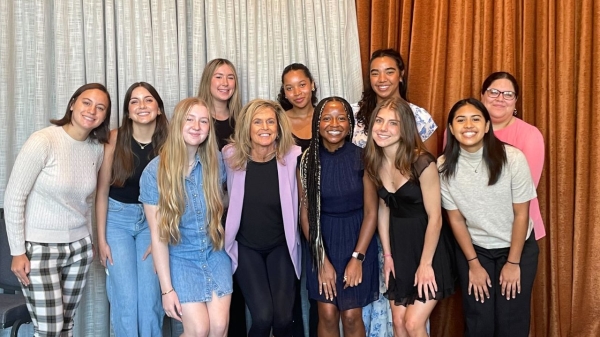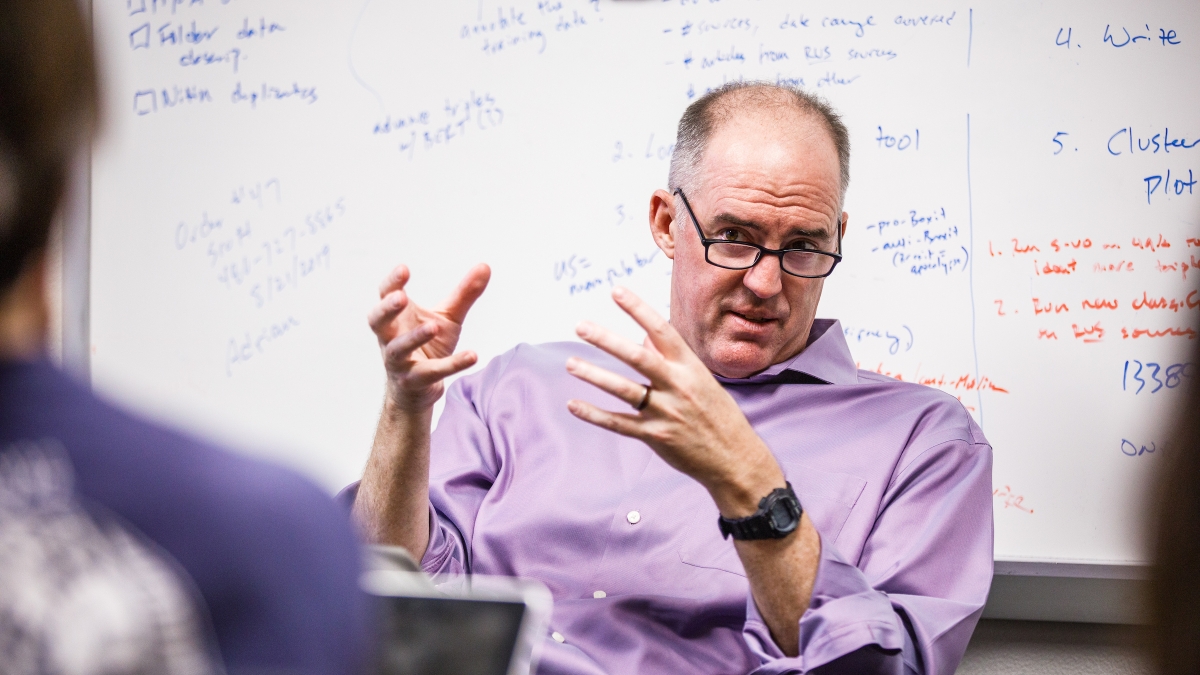There's an insidious threat that seeks to divide the nation and undermine our faith in democracy — disinformation. Often called fake news today, disinformation is the spread of false information with the willful intent to deceive.
Scott Ruston, a research scientist with the Global Security Initiative at Arizona State University, studies why disinformation is believable and how it spreads. In the latest ASU KEDtalk here, he offers tips on how to identify and defend yourself against fake news.
Video by Knowledge Enterprise
Ruston's talk is part of the ASU KEDtalks series. Short for Knowledge Enterprise Development talks, KEDtalks aim to spark ideas, indulge curiosity and inspire action by highlighting ASU scientists, humanists, social scientists and artists who are driven to find solutions to the universe’s grandest challenges.
Tune in to research.asu.edu/kedtalks to discover how researchers are attacking locust plagues, why baby steps are not the best way to achieve change and more.
Top photo by Andy DeLisle/ASU
More Law, journalism and politics

Cronkite School launches Women Leaders in Sports Media live-learn program
Women in a new sports media program at Arizona State University got a solid game plan from a sports veteran at an Aug. 20 welcome event.“Be humble, be consistent and be a solver,” Charli Turner…

ASU center to host the Pursuits of Education and Excellence Symposium
The Center for the Study of Race and Democracy (CSRD) at Arizona State University is introducing the Pursuits of Education and Excellence Symposium as part of an ongoing initiative to commemorate the…
ASU journalism students dominate NATAS Student Production Award nominations
Students at Arizona State University’s Walter Cronkite School of Journalism and Mass Communication dominated the nominations field of the prestigious Rocky Mountain Southwest Chapter of the National…
